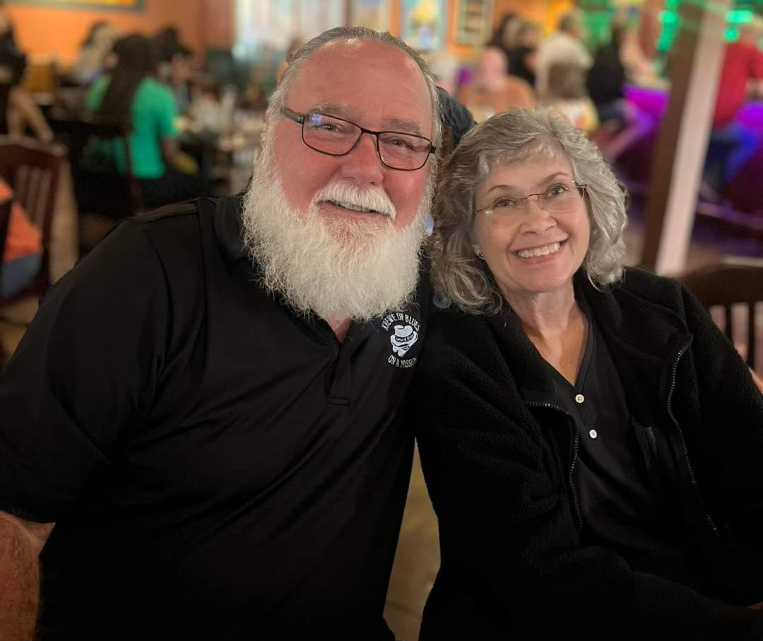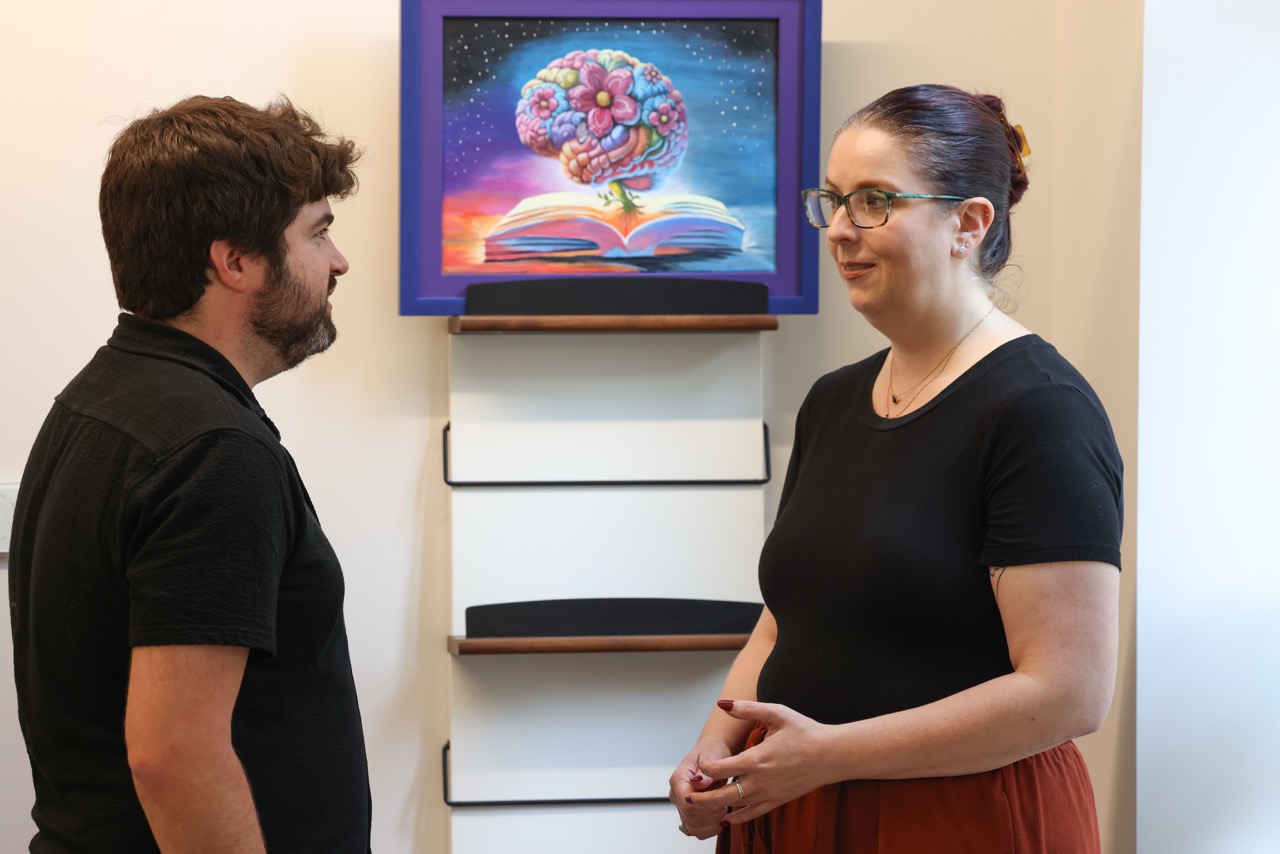An Artist’s Journey Navigating Life and Communication After Primary Progressive Aphasia Diagnosis
By: Ananya Chandhok
Carla Watson had a long career as a head bank teller and a supervisor at Navy Federal Credit Union, but she also had a passion for art.
She developed a deep interest in art from a young age.
“When I was little, I would draw on my brother’s pant leg,” she said. “And when I got into school, I always took art classes.”
Through every phase of life, art was a constant for her. In fact, being diagnosed with a rare cognitive syndrome, called primary progressive aphasia (PPA), was not enough to stop her either.
Carla, a person living with PPA, and her husband, Duane, spoke to the Mesulam Center about her struggles and triumphs through her journey with the syndrome.

Carla and her husband Duane enjoy a night out together.
For her, art was always the backing track to her life — a symphony of drawing and painting that constantly brought her joy.
“Being able to give it [the painting] to the person makes me happy,” she said. “I was able to do it for them for whatever reason they needed.”
While art remained a constant, her ability to verbally communicate started to fall short nine
She began to notice it while talking to her husband Duane.
“I would be talking, and all of a sudden, I couldn’t remember the word,” she said. “And it was something I should have remembered.”
Eventually, Watson went through an “extensive battery of neurology testing” in 2021, but she did not receive a conclusive diagnosis, Duane said. “You’re talking about a woman who was a head bank teller,” said Duane, remembering his conversation with one of Watson’s earlier physicians. “She always got commendable remarks [on the job]…So there is something going on.”
Ultimately, Watson met with three doctors over two years before getting an answer. She was diagnosed with primary progressive aphasia (PPA), a rare dementia syndrome that results in a progressive loss of language. “We were just ecstatic to put a name to what she was experiencing and understand what she was going through,” Duane said.
But soon enough “the reality of it all started settling in,” Duane said. Language impairments, which appear gradually at first, can compound over time, which can lead to changes in memory, judgment, attention, and personality.
Additionally, the condition has no cure.
Despite the definitive diagnosis, Duane continued searching for resources.
“I started looking and trying to find things because I thought there’s got to be something,” he said. “That’s when I found the Mesulam Center.” Watson’s journey through the Center helped her identify resources such as speech therapy after she was successfully enrolled into the Language in Primary Progressive Aphasia Study.

"To defeat Primary Progressive Aphasia, the brain will blossom from knowledge of the book." Mesulam Center staff members talk in front of a painting that Carla recently created for the Center. (Photo by Teresa Crawford)
Practicing word association strategies with peers and loved ones helped Watson take back control over her language skills. “[Especially during Christmas], talking to people and listening to them helped me,” Watson said.
The Mesulam Center continues to be a valuable resource and support system for the couple, Duane said.
“Carla has always said that she just wants to participate so that she could possibly get better,” he said. “But moreover, [she hopes] to give them the knowledge so that the Center can potentially come up with a viable treatment for PPA.”
While the Center provides Watson with a support system, she continues to give back through her gift — art. its home at the Center, after Watson gifted it to Marsel Mesulam, MD, founding director emeritus of the Mesulam Center.
“Carla got very moved,” said Duane, when describing her reaction to Mesulam receiving the painting. “She was on the verge of tears, and it was more from happiness than anything else.”